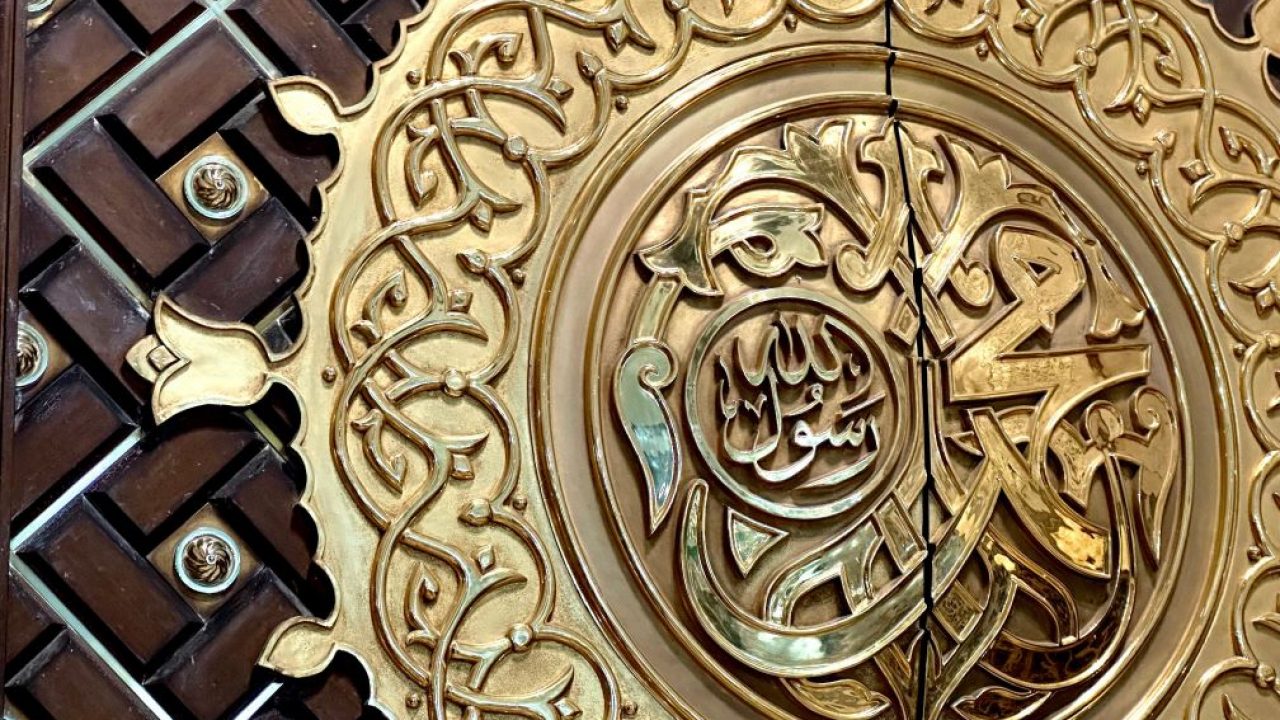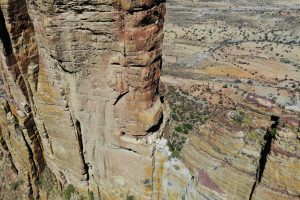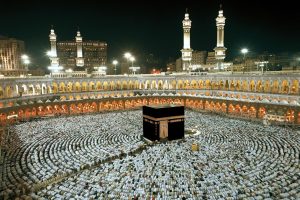
© Shutterstock
Translated by Ahmad Nooruddeen Jahangeer Khan for The Review of Religions Translation Team.
Address on 7th April 1934, upon the inauguration of the Bait-ul-Fazl Mosque, Lyallpur [Faisalabad].
After reciting the tashahhud and ta‘awwudh, His Holiness (ra) stated:
From the very early days of my Khilafat, I have made it a principle to not leave Qadian upon a standard invitation from any local chapter of the Community. The reason for this is that due to the love and sincerity every member of the Community has, they would all vie with one another to extend their invitations, thereby I would either always be travelling outside of Qadian or some local chapters would complain that I have visited other chapters but not them.
Previously there has only been one such instance where I visited a local chapter upon their invitation, in Sialkot. This was because, during his lifetime, the Promised Messiah (as) had promised to visit them again, and so, to fulfil this promise, I went there at the wish of the local members.
The main reason I agreed to this visit [to Lyallpur] is that I felt it was a religious obligation. Lyallpur is the centre of a new settlement, and in this respect it is a new earth, as it were. Because the Promised Messiah (as) had had a vision in which he was shown that he had come to establish a new earth, I decided to visit this new settlement that has been established so that this vision could be fulfilled in one respect. The Promised Messiah (as) saw in the vision that he had created a new heaven and a new earth.[1] The true meaning of this is that through the advent of the Promised Messiah (as), a new life would be breathed into the entire world. But a secondary meaning of this is that wherever there is a new settlement, true faith ought to be instilled in its inhabitants. Hence, I agreed in light of this objective, so that God Almighty may strengthen Ahmadiyyat in the area, and so that alongside the physical dwelling, there should also be a spiritual dwelling. Moreover, if any other local chapter were to invite me, then I would be able to respond to them with this reasoning.
Now I wish to say a few things about the speeches that have been delivered. First of all I pray for those who have strived to fill the mosque and for whatever sacrifices they have made in this effort. May Allah the Almighty accept their services and reward them immensely for this. May this mosque be the centre for true worship to Him and may all arrogance and pride – which are the antithesis of worship – be removed from the hearts of those who are attached with this mosque. As I thank those who delivered these addresses, I must also express my regret about something. People from Asia have a tendency to act out of emotion. This habit is not to be found amongst the people of the West, for all their dealings have an element of commerce and profit. When someone ascends to the throne in an Asian country he may free captives, forgive murderers, grant vacations to workers, and bestow awards and honours. On the other hand, when a king in Europe is sat at his throne, no one has any knowledge [of his affairs]. Thus, our world is very much sentimental, which can, of course, be beneficial in certain circumstances. I feel on this occasion that as God Almighty has enabled you to construct a house in His name, grievances should not have been made against certain people. I accept that they may have shown opposition, but they may have done so with the attitude that they were rendering a service to their faith. Now that God Almighty has granted you success [in the completion of the mosque], it would behove you to express your gratitude to those who helped, and not mention those who opposed [the building of the mosque] and instead to offer heartfelt prayers that God Almighty grant them guidance. These aspects of the address have pained me. Asian kings release their captives in times of joy, yet those who opposed [the mosque] were not even your captives so it would have cost you nothing to avoid mentioning them.
Every Ahmadi of Lyallpur [Faisalabad] must consider this to be the house of God. If it is not the house of God, it cannot be a mosque. But if it is the house of God, then not a single one of you should think for even a moment that it belongs to them.
Hereafter, I wish to briefly remind everyone of the responsibilities that come with the construction of a mosque…A mosque is a house of God, so if, after having built one, a person were to say, ‘we built this mosque, so it is ours,’ it would be as though they are declaring the house of God to be their own. In reality, if one were to declare someone else’s house to be their own, they would be considered criminals. Therefore, with this in mind, consider just how great a punishment one would deserve if they were to build a house in the name of God and then declare it to be their own.
Thus, every Ahmadi of Lyallpur [Faisalabad] must consider this to be the house of God. If it is not the house of God, it cannot be a mosque. But if it is the house of God, then not a single one of you should think for even a moment that it belongs to them.
Now that I have inaugurated this mosque by offering two rak‘at [units of prayer], no one has the right to consider it to be their own, nor to prevent anyone from worshipping therein, to the extent that if one obstructs even a Hindu or a Christian, they would be considered criminals in the sight of God, for they will have declared the house of God to be their own. Others also build mosques and place a sign outside stating that no Shia, Ahmadi or Wahhabi is allowed to enter; but they are merely deceiving themselves. They build a house of God, but then seize control over it themselves. If you also do the same, you will never be able to attain the grace of God. Your sign should state that this is a house of God, so whoever desires to invoke His name may do so, and we will be pleased no matter how they wish to worship.
A Christian delegation once came to the Holy Prophet (sa) and discussed some religious matters and the time for their worship drew near. Among Christians there are some who associate partners with God, and some who are monotheists, even though – like certain Muslims – they revere Jesus (as) to such a degree which only behoves God, while nevertheless believing God to be One. This party of Christians were polytheists and carried golden crosses which they worshipped. They said to the Holy Prophet (sa) that they would go out to worship, but the Holy Prophet (sa) replied that this mosque was for the worship [of God] and that they could worship therein however they pleased. Hence, they placed their crosses there and worshipped in their own manner.[2]
Of course the community is responsible for the administration of the mosque and it can make decisions on an administrative level. For example, if it feels that a lot of noise is being made, it can allocate different hours for certain people to worship, or if someone is causing damage, they may stop them from doing so. Hence, you also have a right to intercede in such administrative matters, but if any hindrance is caused with regards to worship, then this will no longer remain a house of God, but a place for people. In that case, you shall derive no blessings thereof.
This is the second mosque which I have inaugurated in this manner. The first was the mosque in England where I also stated, ‘I depart by now entrusting you with this responsibility – that this is a house of God, and that everyone should have a right to worship therein.’ I have also stated on this occasion that the purpose of mosques is to increase in the remembrance of God, and therefore, its doors should be open to all. Your sole task is to maintain its cleanliness, as is understood from the supplications of Abraham (as). Continue to strive to keep it filled, do not allow it to become unclean, observe the prayers in congregation. One’s responsibilities increase wherever there is a mosque. The excuse that one is not able to worship in congregation because there is no mosque nearby can be accepted to a certain extent. But now that the mosque has been constructed, there should be no indolence in performing the prayers in congregation.
Thus, whatever efforts you make for your homes to be inhabited should be also directed towards this. When one builds a home they do not leave it empty; rather, they live in it by day and by night. If an intelligent person were to be away for a long period of time, they would rent it out so that it remains inhabited. Hence, even greater attention should be paid to filling the house of Allah with worshippers.
At no point in time should this mosque be left abandoned. Mosques are houses of Allah Almighty, so now that this mosque has been constructed, you should not be under the impression that you can remain in the same state in which you were before.
Those who live nearby should come here to offer all five daily prayers in congregation, and those who live further away should come two to three times. At no point in time should this mosque be left abandoned. Mosques are houses of Allah Almighty, so now that this mosque has been constructed, you should not be under the impression that you can remain in the same state as you were before. If you do as I have instructed – declare it a house of God rather than your own – then God shall also treat you in a manner that you have not experienced before.
The Holy Prophet (sa) stated that if God’s servant takes one step towards Him, God shall take two steps towards them. If the servant walks to Him, He shall come running to them. Therefore, there is a great reward from Allah Almighty for one who serves His religion. Thereafter, Allah Almighty shall indeed open new avenues of progress for you, bless you in your preaching efforts, and open the hearts of the people. But it is your job to benefit from this opportunity. Those who fail to benefit when Allah Almighty opens the doors to His mercy incur His displeasure.
Shibli, a noble person of the past, was an excellent governor under the government of Baghdad. There was a great general of the king who presented himself in the royal court and mentioned all of his services in the presence of the king. The king became very pleased and granted him an expensive robe to wear. After wearing it, he suddenly felt the urge to sneeze, as he had a cold. He searched everywhere but couldn’t find his handkerchief. His nose was running and he was worried that it was running in the presence of the king. He therefore turned his face in order to avoid being seen and wiped his nose on the robe, but the king saw this and ordered him to remove the robe immediately, and [ordered] that he be stripped of his rank as he had dishonoured his robe.
Witnessing this, Shibli screamed aloud and began to weep profusely. The king asked, ‘What is the matter with you?’, to which he answered, ‘This man has placed his life in danger for many years, conquered lands for you, and brought hundreds of thousands of people under your rule. Every day that he set forth for battle, he left behind his children to be orphans and his wife to be a widow. Even if you give him a robe worth 100,000 rupees, what value could it hold in comparison to his services? Yet despite that, you were so enraged when the robe was ruined. As for the robe that Allah Almighty granted to me, I ruin it every single day for your sake, and this is why I pondered over what my punishment will be.’ Having said this, he immediately resigned as the governor. He went to different saintly people, seeing as he had committed grave injustices, but each one of them responded by saying that it would be difficult for his repentance to be accepted. Eventually, he went to Hazrat Junaid Baghdadi who said, ‘Your repentance may be accepted, but on the condition that wherever you were a governor, you go and knock on every door, asking for forgiveness and repaying their dues.’ What a difficult task! If one were to tell even a low-ranked officer to do this, they would not be prepared to do so, yet he did exactly this. In the end, he became a very noble person.[4]
Hence, there is a great punishment for failing to recognise and give due rights to the robe of Allah Almighty. As a reward for this work, Allah Almighty will grant you a robe, that is, He will open new avenues of progress to you. It is your duty to benefit from this as much as possible. Therefore, if on the one hand the responsibility to fill the mosques falls on your shoulders, on the other, it is also necessary that you derive as much benefit as possible from the avenues of progress which have been opened. If you do so, your religious and worldly affairs will be rectified, your hearts will become mosques, i.e. the houses of God, in the truest sense, that is to say that God will enter your hearts and remain there, and the paradise which people desire in the next life will be granted to you here.
Al-Fazl, 15th April 1934. (Anwar-ul-Uloom, Vol. 13, pp. 263-269.)
The Review of Religions takes full responsibility for any errors in translation.
ENDNOTES
1. Tadhkirah, pp. 192-193, Fourth Edition. [ENGLISH VERSION: Hazrat Mirza Ghulam Ahmad (as), Tadhkirah (Qadian, India: Islam International Publications Ltd., 2018), 248-250.]
2. Ali bin Burhan al-Din al-Halabi, Al-Sirah al-Halabiyyah, Vol. 3 (Egypt: Muhammad Ali Sabih Maidan al-Azhar, 1935), 239.
3. Sahih al-Bukhari, Kitab al-Tauhid, Bab Qaul Allah Ta‘ala ‘Wa Yuhadhirukum Allah Nafsah’, Hadith 7405.
4. Farid al-Din Attar, Tadhkirat al-Auliya’ (Lahore, Pakistan: Malik Din Muhammad, 1990), 343-345.




Add Comment